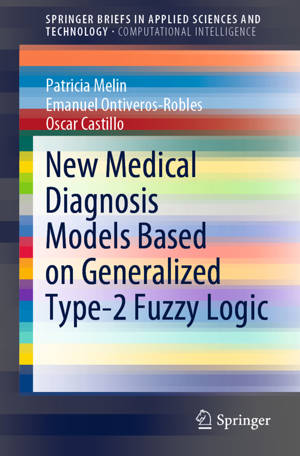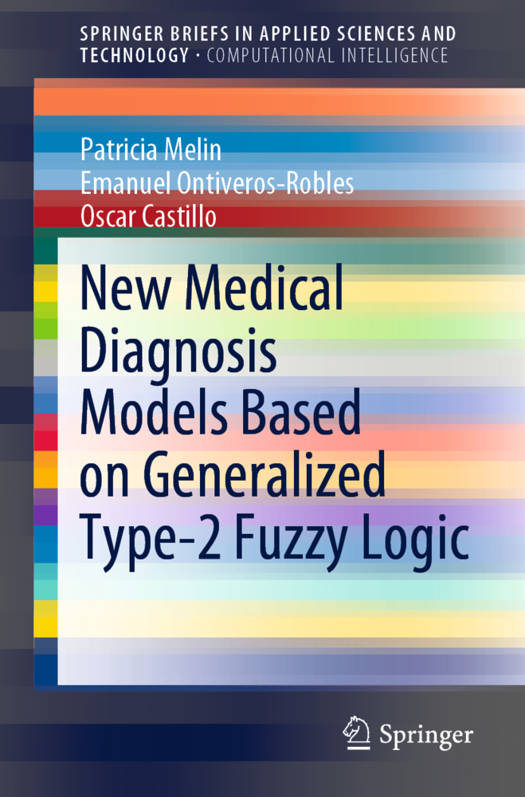
- Afhalen na 1 uur in een winkel met voorraad
- Gratis thuislevering in België vanaf € 30
- Ruim aanbod met 7 miljoen producten
- Afhalen na 1 uur in een winkel met voorraad
- Gratis thuislevering in België vanaf € 30
- Ruim aanbod met 7 miljoen producten
Zoeken
New Medical Diagnosis Models Based on Generalized Type-2 Fuzzy Logic
Patricia Melin, Emanuel Ontiveros-Robles, Oscar Castillo
Paperback | Engels | SpringerBriefs in Applied Sciences and Technology | SpringerBriefs in Computational Intelligence
€ 52,95
+ 105 punten
Omschrijving
This book presents different experimental results as evidence of the good results obtained compared with respect to conventional approaches and literature references based on fuzzy logic. Nowadays, the evolution of intelligence systems for decision making has been reached considerable levels of success, as these systems are getting more intelligent and can be of great help to experts in decision making. One of the more important realms in decision making is the area of medical diagnosis, and many kinds of intelligence systems provide the expert good assistance to perform diagnosis; some of these methods are, for example, artificial neural networks (can be very powerful to find tendencies), support vector machines, that avoid overfitting problems, and statistical approaches (e.g., Bayesian). However, the present research is focused on one of the most relevant kinds of intelligent systems, which are the fuzzy systems. The main objective of the present work is the generation of fuzzy diagnosis systems that offer competitive classifiers to be applied in diagnosis systems. To generate these systems, we have proposed a methodology for the automatic design of classifiers and is focused in the Generalized Type-2 Fuzzy Logic, because the uncertainty handling can provide us with the robustness necessary to be competitive with other kinds of methods. In addition, different alternatives to the uncertainty modeling, rules-selection, and optimization have been explored. Besides, different experimental results are presented as evidence of the good results obtained when compared with respect to conventional approaches and literature references based on Fuzzy Logic.
Specificaties
Betrokkenen
- Auteur(s):
- Uitgeverij:
Inhoud
- Aantal bladzijden:
- 78
- Taal:
- Engels
- Reeks:
Eigenschappen
- Productcode (EAN):
- 9783030750961
- Verschijningsdatum:
- 4/06/2021
- Uitvoering:
- Paperback
- Formaat:
- Trade paperback (VS)
- Afmetingen:
- 156 mm x 234 mm
- Gewicht:
- 136 g

Alleen bij Standaard Boekhandel
+ 105 punten op je klantenkaart van Standaard Boekhandel
Beoordelingen
We publiceren alleen reviews die voldoen aan de voorwaarden voor reviews. Bekijk onze voorwaarden voor reviews.











